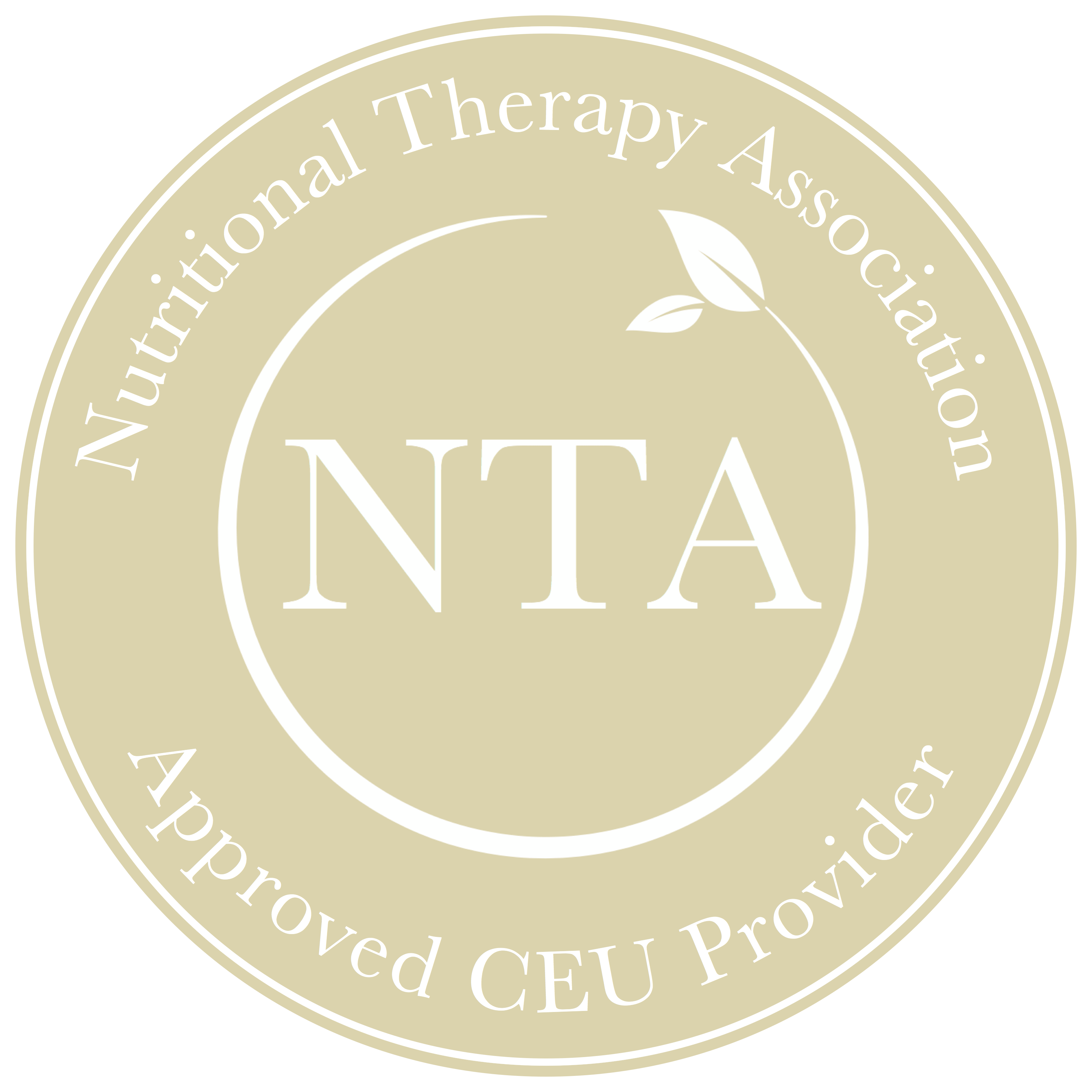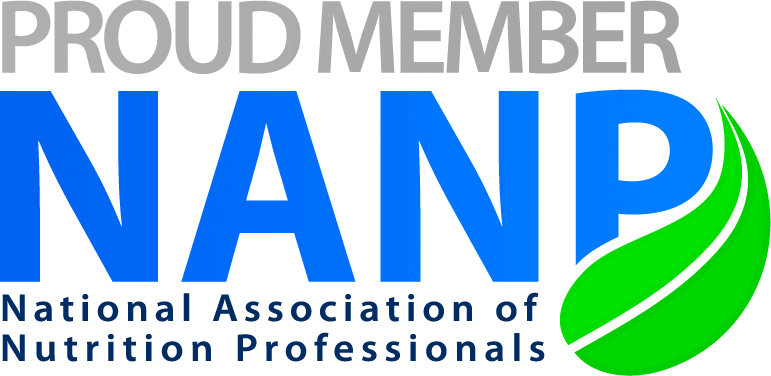Polycystic Ovary Syndrome (PCOS) affects up to 1 in 10 people, yet nearly 70% remain undiagnosed (Azziz et al., 2004; Teede et al., 2010). While PCOS is often viewed as a hormonal disorder, it’s far more complex than that. PCOS is a multi-system condition that impacts everything from metabolism and mood to fertility and cardiovascular health.
This is a topic that is near and dear to my heart. I dove into the Restorative Wellness Solutions curriculum out of a deep need to reclaim my life from PCOS. After one month of a gut healing protocol, my menstrual cycle made a comeback after being a no-show for 15 years.
Here’s what many practitioners miss: supporting someone with PCOS doesn’t begin with a hormone protocol—it starts with the gut.
As Restorative Wellness Solutions practitioners, if you’re working with anyone in the menstrual cycling population, you’re going to see PCOS, whether it’s been diagnosed or not. It’s one of the most common, underrecognized conditions we encounter, and it requires a functional, root-cause approach to see lasting change.
What is PCOS?
PCOS is not just a hormonal problem. It’s a multi-system condition that impacts every aspect of a person’s life.
Common symptoms may include:
- Irregular or absent menstrual periods
- Anovulation
- Cystic acne
- Hirsutism (facial/body hair)
- Thinning scalp hair
- Weight gain or obesity
- Fatigue and insulin resistance
- Infertility
- Anxiety and/or depression
Long-term risks are equally daunting — those with PCOS:
- Are 4× more likely to develop type 2 diabetes (Legro et al., 1999; Moran et al., 2010)
- Are 2× more likely to experience cardiovascular disease, endometrial cancer, and depression (Wild et al., 2010; Barry et al., 2014; Cooney et al., 2017)
- Have a 30–50 % miscarriage rate — up to 3× higher than people without PCOS (Boomsma et al., 2006)
- Face a 30 % higher risk of sleep apnea, which further impacts immunity, brain health, and hormone balance (Vgontzas et al., 2001; Fogel et al., 2001)
Sounds like a blast, right?!
Beating the Odds
Despite the challenges people with PCOS face, there is hope. Unfortunately, most people with PCOS don’t know that. They are told that their symptoms are permanent, and that their dreams of losing weight, having a baby, or clearing up their skin are for other people but not for them.
When someone is diagnosed with PCOS, they’re often handed birth control pills and told that there’s nothing that can be done to reverse the debilitating symptoms they’re experiencing.
As a Restorative Wellness Practitioner, you have an opportunity to help clients with PCOS reclaim their lives and their dreams. But to do that, the step-by-step process to help them heal may not start where you would expect.
At Restorative Wellness Solutions, we teach practitioners to look for root causes, not just manage symptoms. And in the case of PCOS, gut health must be prioritized in order to build a long-term healing strategy that reduces inflammation, balances blood sugar levels, and restores equilibrium to the endocrine system.
The Gut-Hormone Connection
Our gastrointestinal system does far more than process food. It governs immunity, detoxification, and nutrient absorption. And what most people don’t realize is that it plays an integral role in hormone metabolism and signaling.
Research shows those with PCOS have significantly different microbial populations compared to healthy controls, with notable shifts in diversity and abundance linked to hormonal and metabolic dysfunction (Qi et al., 2022).
Hormones don’t just need to be balanced—they need to be cleared. And that job belongs to the digestive system.
The liver packages estrogens, androgens, and insulin breakdown products for elimination via bile and urine. Liver detoxification can be impaired due to inflammation, poor nutrient status, and toxic load.
Phase II liver detox—especially glucuronidation—is key for estrogen metabolism. But if the gut is overproducing beta-glucuronidase, hormone imbalances will continue.
During glucuronidation, the liver neutralizes estrogen—akin to putting garbage in a trash bag. Once that estrogen is packaged up, it travels along a bile highway to the estrobolome.
The estrobolome is a collection of gut microbes capable of metabolizing estrogens. These microbes produce an enzyme called beta-glucuronidase, which can deconjugate estrogens meant for excretion, allowing them to be recirculated back into the body—like taking out the trash only to find it back in your kitchen by dinner.
In healthy balance, the estrobolome is a normal part of estrogen recycling. But in people with dysbiosis or constipation, beta-glucuronidase activity is often too high, leading to impaired hormone clearance.
The Hormone Gatekeeper
Inflammation is now recognized as a core feature of PCOS. What drives it?
A 2023 review confirms that PCOS involves a complex imbalance of pro- and anti-inflammatory cytokines that interact with insulin resistance, adiposity, gut dysbiosis, and endocrine dysfunction. (Frontiers in Immunology, 2023).
Gut permeability (aka “leaky gut”) allows bacterial endotoxins like lipopolysaccharides (LPS) to escape into the bloodstream, activating systemic inflammation. This immune activation disrupts ovarian function and suppresses the liver’s production of sex hormone-binding globulin (SHBG).
SHBG is a liver-produced protein that binds to sex hormones—testosterone, estrogen (estradiol), and DHT—in an inactive form. Only unbound or “free” hormones are biologically active and can enter cells.
Think of SHBG as the chaperone at a dance—it only allows a certain number of hormones onto the floor at once. High insulin and inflammation drive SHBG low, resulting in too many hormones on the dance floor—causing acne, hirsutism, infertility, and other PCOS symptoms.
Gut-Blood Sugar Axis: Microbiome Meets Metabolism
Blood sugar dysregulation and insulin resistance are nearly universal in PCOS, and the microbiome is deeply involved in both. Blood sugar regulation is an essential part of every PCOS recovery plan, but it must be built upon optimized gut function.
Healthy gut bacteria produce short-chain fatty acids (SCFAs) like butyrate, which improve insulin sensitivity and reduce inflammation. Dysbiosis lowers SCFA production and increases gut-derived endotoxins like LPS, which interfere with insulin receptor function—a phenomenon known as metabolic endotoxemia (Cani et al., 2007).
Akkermansia is a beneficial mucin-degrading bacterium that supports SCFA production, gut lining integrity, inflammation regulation, and metabolic health. While direct PCOS trials are limited, Akkermansia supplementation has improved insulin sensitivity, reduced inflammation, and enhanced gut barrier function in overweight and insulin-resistant populations (Depommier et al., 2019).
Balancing blood sugar isn’t just about eating less sugar. If fat or protein digestion is compromised, it’s nearly impossible to nourish the body and resolve blood sugar issues long term. This is where functional testing becomes crucial. A GI-MAP stool test is invaluable for uncovering digestive dysfunction in your PCOS clients.
Don’t Overlook the Basics: Digestion Fuels Hormonal Health
Before diving into hormone testing or complex protocols, ask: is this client digesting and absorbing their food?
Optimal hormone production requires adequate protein and fat digestion. Amino acids (tyrosine, tryptophan) are raw materials for hormone synthesis. Healthy fats and cholesterol are building blocks for steroid hormones.
Many with hormonal imbalances struggle with digestive issues, a key piece of the PCOS puzzle:
- Low stomach acid (poor protein breakdown, nutrient deficiencies)
- Gallbladder dysfunction or sluggish bile flow (impaired fat digestion, hormone clearance)
- Pancreatic insufficiency (reduced enzyme activity)
- Low Akkermansia levels (microbiome and metabolic imbalances)
Without proper digestion:
- Blood sugar becomes unstable, triggering inflammation and a dysfunctional hormone cascade.
- Inflammation increases as undigested particles trigger immune responses.
- Hormone production suffers from lack of raw materials.
In other words: you can’t build healthy hormones on a foundation of poor digestion.
With your PCOS clients, assess enzyme sufficiency, stomach acid, bile flow, and motility as part of any healing protocol. This is often the missing link between stalled progress and true transformation.
Clinical Takeaways
- PCOS is driven by inflammation, blood sugar imbalances, and compromised digestion.
- PCOS protocols must start with gut health to lay the groundwork for hormone production, regulation, and detoxification.
- On a GI-MAP, pay special attention to beneficial bacteria (Akkermansia), beta-glucuronidase, inflammatory bacteria, steatocrit, and elastase.
- Your goal is to optimize digestion and restore microbial balance as a springboard for blood sugar and hormone protocols.
- A nutrient-dense, high-fiber, low-carb diet usually fits well for people with PCOS.
- PCOS is not just a hormonal disorder—it’s a systems problem, and the gut often initiates the breakdown.
Your Most Important Clinical Pearl
Lastly, don’t underestimate the power of empathy.
Those struggling with PCOS are often tired, dismissed, and desperate for answers. Many feel broken by a system that only offers Band-Aids.
Your understanding, empathy, and education are therapeutic tools in themselves.
By explaining what's happening in their bodies—and offering a roadmap for healing—you’re not just shifting hormones. You’re helping them reclaim hope, confidence, and the life they thought they couldn’t have.
References
- Azziz, R., Woods, K. S., Reyna, R., Key, T. J., Knochenhauer, E. S., & Yildiz, B. O. (2004). The prevalence and features of the polycystic ovary syndrome in an unselected population. Journal of Clinical Endocrinology & Metabolism, 89(6), 2745–2749.
- Teede, H. J., Misso, M. L., Deeks, A. A., Moran, L. J., Stuckey, B. G., Wong, J. L. A., … & Costello, M. F. (2010). Assessment and management of polycystic ovary syndrome: summary of an evidence-based guideline. Medical Journal of Australia, 195(6), S65–S112.
- Legro, R. S., Kunselman, A. R., Dodson, W. C., & Dunaif, A. (1999). Prevalence and predictors of risk for type 2 diabetes mellitus and impaired glucose tolerance in polycystic ovary syndrome: a prospective, controlled study in 254 affected women. Journal of Clinical Endocrinology & Metabolism, 84(1), 165–169.
- Moran, L. J., Misso, M. L., Wild, R. A., & Norman, R. J. (2010). Impaired glucose tolerance, type 2 diabetes and metabolic syndrome in polycystic ovary syndrome: a systematic review and meta-analysis. Human Reproduction Update, 16(4), 347–363.
- Wild, R. A., Rizzo, M., Clifton, S., & Carmina, E. (2010). Lipid levels in polycystic ovary syndrome: systematic review and meta-analysis. Fertility and Sterility, 94(1), 260–269.
- Barry, J. A., Azizia, M. M., & Hardiman, P. J. (2014). Risk of endometrial, ovarian and breast cancer in women with polycystic ovary syndrome: a systematic review and meta-analysis. Human Reproduction Update, 20(5), 748–758.
- Cooney, L. G., & Dokras, A. (2017). Depression and anxiety in polycystic ovary syndrome: etiology and treatment. Current Psychiatry Reports, 19(11), 83.
- Boomsma, C. M., Eijkemans, M. J. C., Hughes, E. G., Visser, G. H. A., Fauser, B. C. J. M., & Macklon, N. S. (2006). A meta-analysis of pregnancy outcomes in women with polycystic ovary syndrome. Human Reproduction Update, 12(6), 673–683.
- Vgontzas, A. N., Legro, R. S., Bixler, E. O., Grayev, A., Kales, A., & Chrousos, G. P. (2001). Polycystic ovary syndrome is associated with obstructive sleep apnea and daytime sleepiness: role of insulin resistance. Journal of Clinical Endocrinology & Metabolism, 86(2), 517–520.
- Fogel, R. B., Malhotra, A., & White, D. P. (2001). Sleep. Annals of Internal Medicine, 134(7), 654–662.
- Qi, X., Yun, C., Pang, Y., et al. (2022). The Gut Microbiota–Hormones Axis in PCOS: Insights into Clinical Practice. Frontiers in Endocrinology, 13: 867968.
- Tremellen, K., & Pearce, K. (2012). Dysbiosis of Gut Microbiota (DOGMA) – A novel theory for the development of Polycystic Ovarian Syndrome. Medical Hypotheses, 79(1), 104–112.
- Cani, P. D., et al. (2007). Metabolic endotoxemia initiates obesity and insulin resistance. Diabetes, 56(7), 1761–1772.
- Depommier, C., Everard, A., Druart, C., Plovier, H., Van Hul, M., Vieira-Silva, S., Falony, G., & Cani, P. D. (2019). Supplementation with Akkermansia muciniphila in overweight and obese human volunteers: A proof-of-concept exploratory study. Nature Medicine, 25(7), 1096–1103.
- Asghari, M. R., Ramezani Tehrani, F., & Ghaffari, S. (2023). Dysregulation of immune response in PCOS organ system. Frontiers in Immunology, 14, 1169232.
ABOUT THE AUTHOR

Ishbel Cavaleri, FNTP, MRWP
Ishbel specializes in working with clients who have testosterone imbalances via a gut-first approach. She holds a MRWP certificate and has helped facilitate phenomenal success for her clients using RWS tools. Outside of work she is all about quality time with loved ones, reading, running & yoga/Pilates.
Ishbel struggled with her health for much of her life and has a keen awareness of the impact being sick can have on every area of life.
As a teenager she suffered from chronic sinus infections which were treated with countless rounds of antibiotics. Over time her health continued to devolve into chronic (and often debilitating) low back pain, severe constipation and ultimately, a diagnosis of Polycystic Ovary Syndrome (PCOS).
In her early twenties, Ishbel started a successful yoga and Pilates therapy business. She learned how to heal her chronic low back pain and built a busy practice working with people who suffered from chronic pain.
In her late twenties Ishbel was told she would never be able to have children, and that she would need prescription drugs to manage her PCOS symptoms. For better or worse, Ishbel loves a challenge—and nothing motivates her more than being told what she wants is impossible!
In 2015 Ishbel became a Functional Nutritional Therapy Practitioner. While FNTP school helped Ishbel tremendously with her symptoms, she was still struggling. Upon completing the first month of the RWS Gut Healing Program, she got her menstrual cycle back for the first time in 15 years.
Today, Ishbel runs a thriving company, IshbelWELL, which specializes in working with men and women who struggle with the constellation of health issues that lead to testosterone imbalances.
When Ishbel is not working, she loves training for half marathons, is an avid reader, and cherishes her daily meditation, yoga, and journaling practices. Spending quality time with the people she loves lights her up, and every day she strives to grow into her full potential so that her young daughter may be inspired to do the same.
🌱 Don’t Miss Our Fertility Series
Ready to take your PCOS protocols even deeper? Check out our Precision Nutrition for Fertility series, where we explore gut-first strategies for optimizing ovulation, balancing hormones, and supporting conception. Register and get your free pass today!






